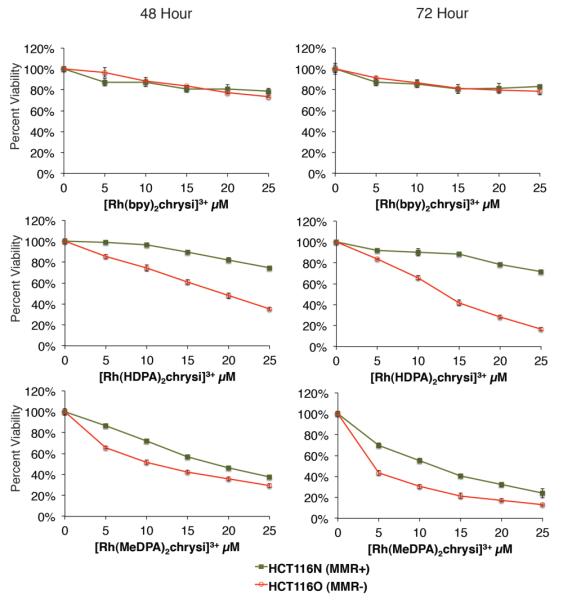Figure 3.

Selective toxicity of [Rh(HDPA)2chrysi]3+ and [Rh(MeDPA)2chrysi]3+ in MMR-deficient cells. HCT116N and HCT116O cells were plated in 96-well format at densities of 5 × 104 cells/well and treated with 0 – 25 μM of [Rh(bpy)2chrysi]3+, [Rh(HDPA)2chrysi]3+, or [Rh(MeDPA)2chrysi]3+. After 48–72 hours, the cells were labeled with MTT for 4 hours. While the first generation complex [Rh(bpy)2chrysi]3+ is non-toxic up to 72 hours, the dipyridylamine derivatives [Rh(HDPA)2chrysi]3+ and [Rh(MeDPA)2chrysi]3+ exhibit toxicity specifically in the MMR-deficient HCT116O cell line at 48 hours.
